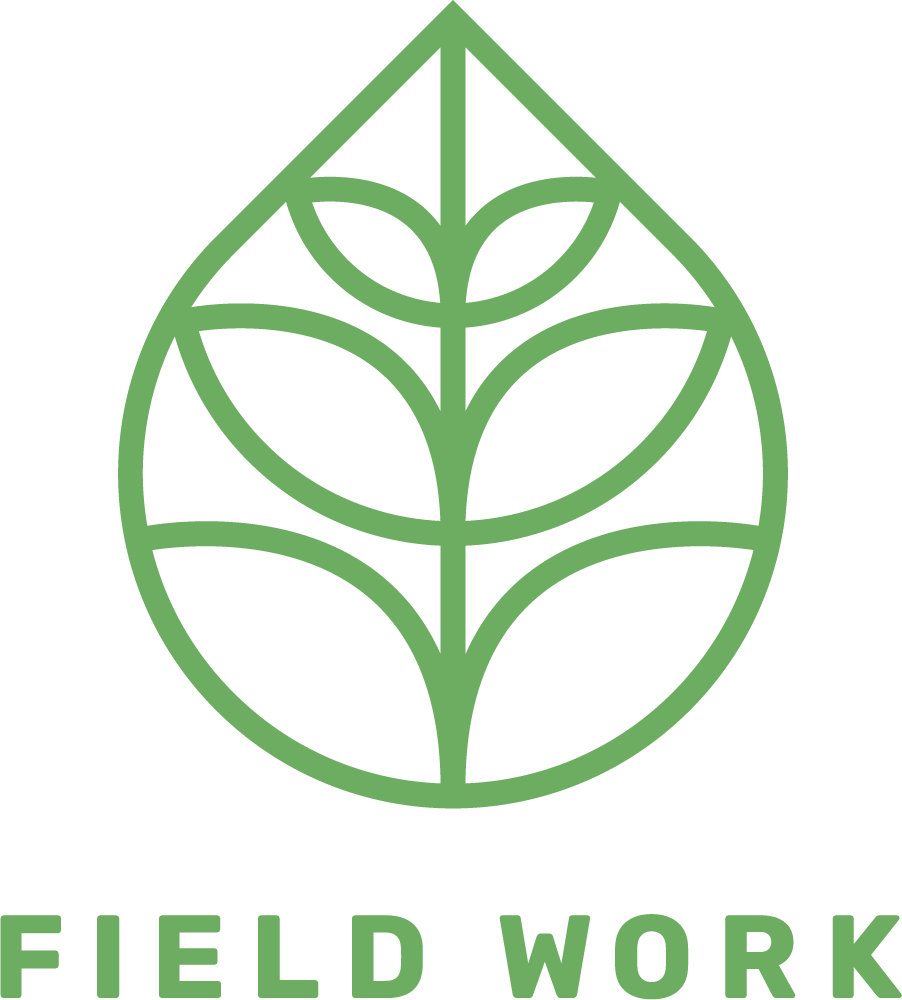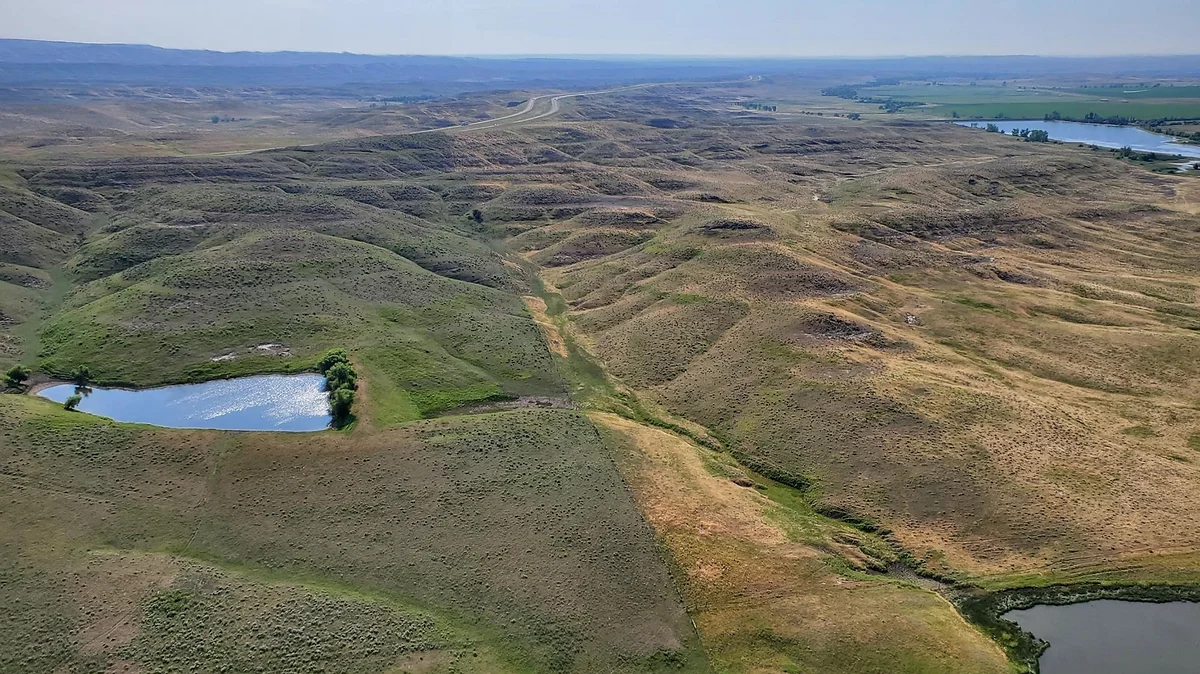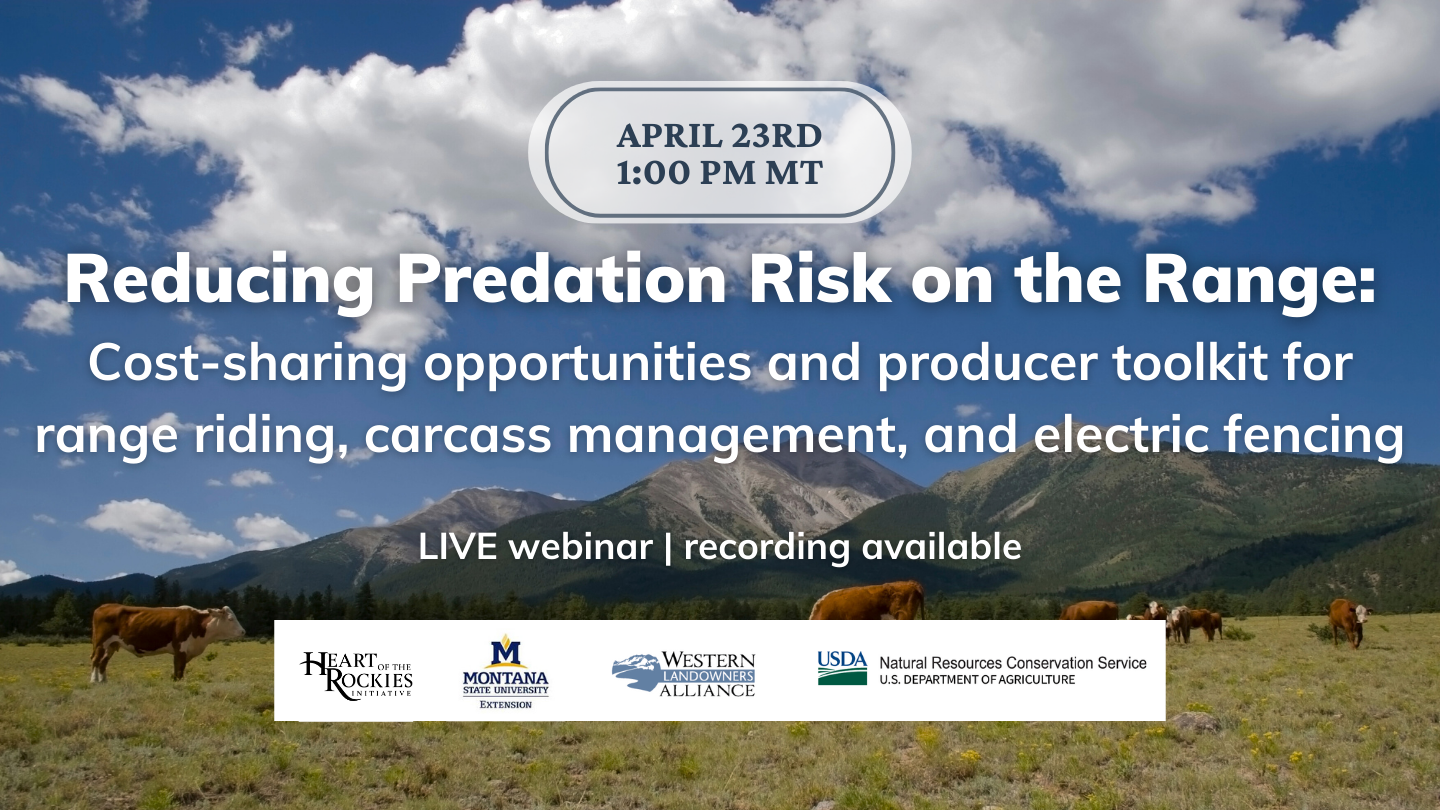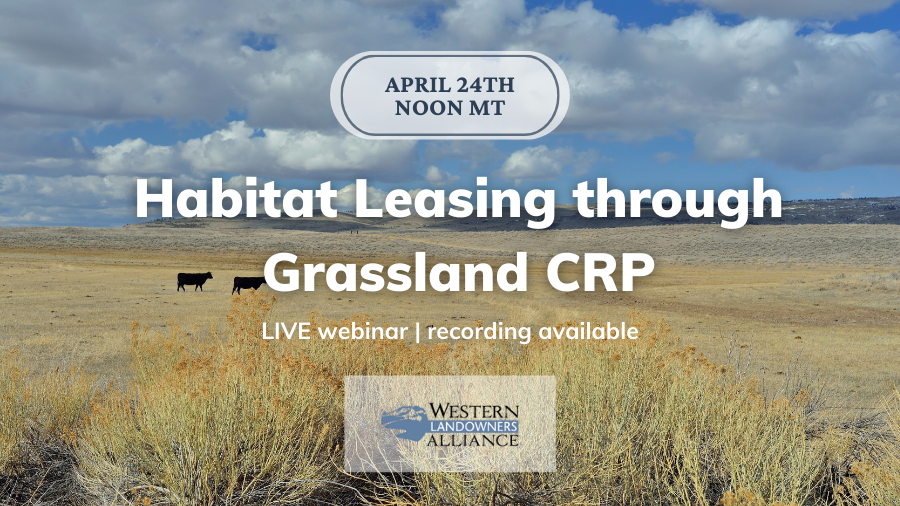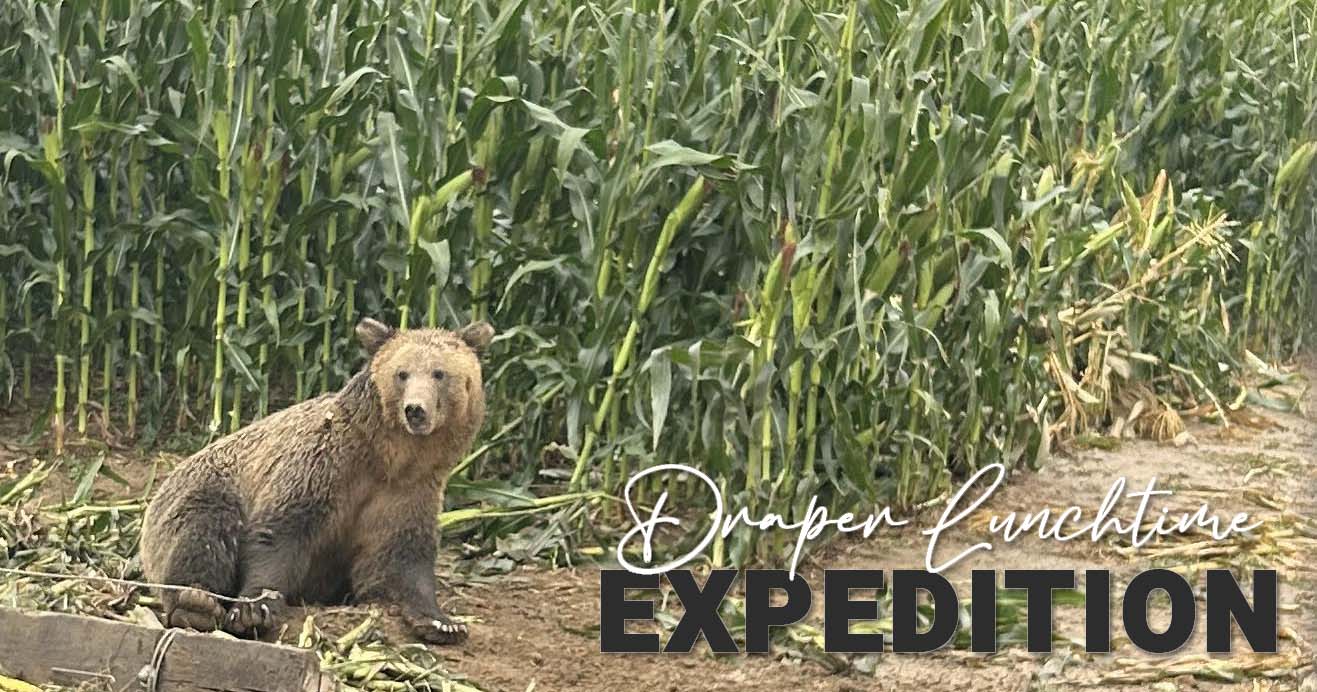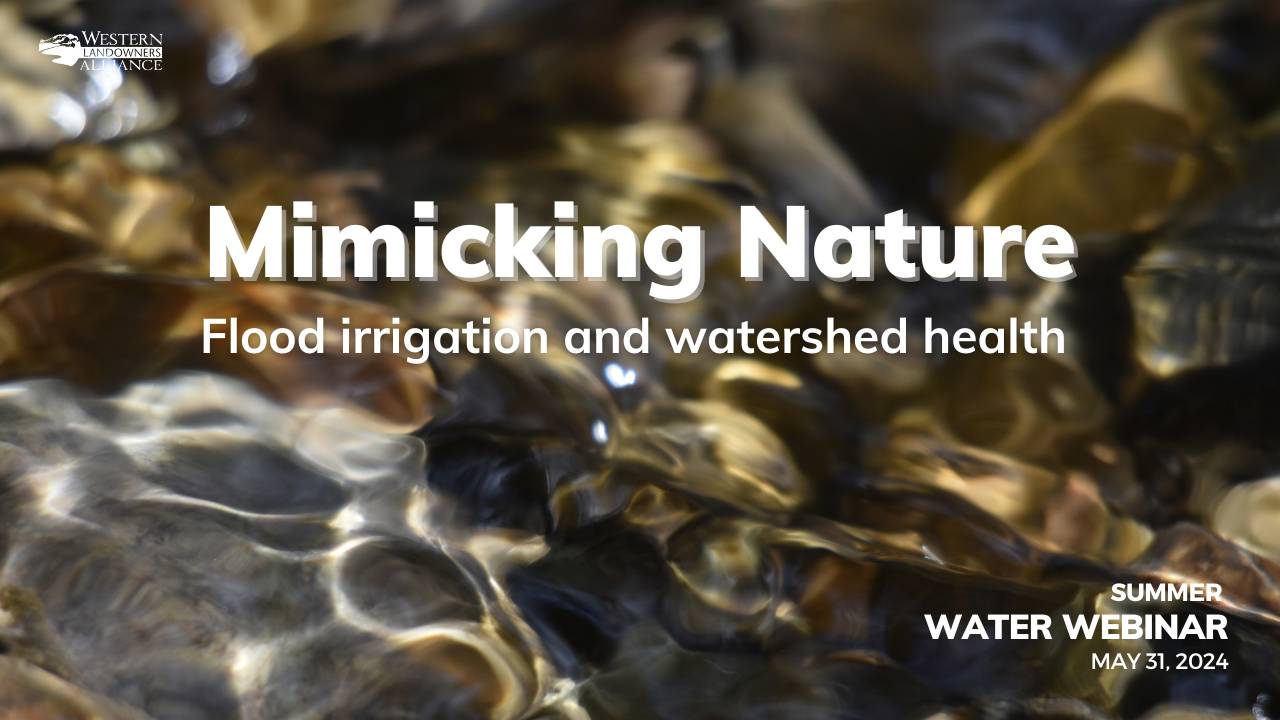Webinar
Acequia Funding Workshop
ZoomThe Acequia and Community Ditch Infrastructure Fund (ACDIF) is a State of New Mexico funding source offered to acequias/community ditches that are political subdivisions of the state through the Interstate…
LOR Foundation’s Field Work 2024 Initiative Webinar
ZoomThe LOR Foundation will begin accepting applications for its Field Work initiative on March 20, 2024. Through Field Work, farmers and ranchers in rural parts of Colorado, Idaho, Montana, New Mexico, and Wyoming are…
LOR Foundation’s Field Work 2024 Initiative Webinar
ZoomThe LOR Foundation will begin accepting applications for its Field Work initiative on March 20, 2024. Through Field Work, farmers and ranchers in rural parts of Colorado, Idaho, Montana, New Mexico, and Wyoming are…
2024 Catalyst Fund Informational Webinar
ZoomThe The Network for Landscape Conservation will host an optional informational webinar for interested applicants on Tuesday, March 26, 2024 at 2pm ET. Network staff will provide a brief overview…
UW Virtual Invasive Grass Workshop
VirtualInvasive annual grasses–such as cheatgrass, medusahead, and ventenata–are the leading cause of degradation and loss of America’s sagebrush grasslands, reducing forage and habitat, fueling more frequent and larger wildfires, and threatening rural economies. While invasive grasses are widespread, there remains a generational opportunity to proactively address this threat. However, many land managers may not be equipped with the information needed to plan and implement effective treatments.
In this one-day virtual workshop, participants will learn about guiding principles, strategic planning processes, tools, and tactics for managing annual grass invasion in sagebrush country. Participants will be introduced to the proactive “defend and grow the core” management philosophy, which emphasizes protecting intact and functioning native plant communities, and expanding them through improved management techniques, rather than initially starting with the most degraded areas. This workshop seeks to inspire participants and start conversations across the sagebrush biome on how to meet the invasive annual grass problem head on in their own watersheds. We hope this information will be especially useful to any land manager, landowner, or conservation practitioner working to conserve and protect the sagebrush biome.
Reducing Predation Risk on the Range
WEBINAR: Reducing Predation Risk on the Range: Cost-Sharing Opportunities and Producer Toolkit for Range Riding, Carcass Management and Electric Fencing Do you operate in an area with wolves, grizzly bears,…
Habitat Leasing through Grassland CRP
Zoomhttps://youtu.be/ZrpP1ehLx2c?si=r0IznO8LLESd46_k Join Western Landowners Alliance and national experts to learn about habitat leasing through Grassland Conservation Reserve Program (CRP). Grassland CRP is a voluntary, working lands program managed through the…
Talk: Large Carnivore Management in Wyoming
Buffalo Bill Center - Coe Auditorium 720 Sheridan Ave, Cody, WY, United StatesLarge carnivore management in Wyoming is multifaceted and always dynamic. Mountain lions, wolves, grizzly bears, and black bears are monitored and managed by a team of experts working together to maintain viable populations of large carnivores in suitable habitats. The team uses a science-based adaptive approach and proactively manages to mitigate human/wildlife conflicts.
The Wyoming Game and Fish Department strives to include localized expertise as well as public desires and attitudes in developing objectives and making management decisions. The Large Carnivore Section provides information and education on large carnivore management and safety to the public all over the state through Bear Wise Wyoming. Through changing population dynamics of both wildlife and people, carnivore management in Wyoming will continue to have its rewards and challenges.
Mimicking Nature: Flood irrigation and watershed health
https://youtu.be/ZeLTeBCyiZo Join us to learn from ranchers and researchers on how flood irrigation helps to sustain seasonal wetlands by mimicking natural processes, how flood irrigation contributes to healthy habitats, and…
Returning to the Land: Encouraging minority youth participation in conservation and agriculture
Join this free online webinar series July 18, 19, 20 at 10:30 am CST each day. Featuring Indian Nations Conservation Alliance Southeastern Coordinator Seth Penn and Alabama forester Christopher Holden.…

